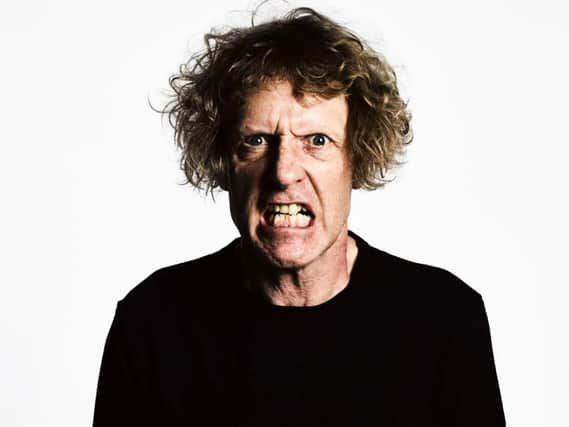Grayson Perry gets inside the minds of men


However, as Grayson Perry: All Man (Channel 4, Thursdays, 10pm) demonstrated, these days, no one really knows what a ‘real man’ is, least of all men themselves.
He wanted to know what it meant to be a man today, especially as he did not conform to a conventional model of masculinity –he regularly dresses in women’s clothes, and has a female alter ego, Claire.
Advertisement
Hide AdAdvertisement
Hide AdArtist Perry – whose transvestism, he said, “gives me enough distance to turn round and look at that ‘tower of power’ that is masculinity” – visited the north east, to the world of mixed martial arts.
Curiously, he found these tattooed scrappers were probably the men most in touch with their feelings. The outlet they found in a ring meant that, outside that environment, they could acknowledge their feelings.
Away from MMA, Perry –who was an empathetic and inquiring interviewer – found men struggling to find a place in the world.
The north east working man, in particular, has been hit hard by decades of decline in heavy industry, and in the Durham Miners’ Gala, where banners depicting mining’s proud heritage are parade d through the city of Durham, he sees “a stirring folk-art requiem to a certain type of man”.
Advertisement
Hide AdAdvertisement
Hide AdThat type of man, someone who had to be tough to survive the demands of that industry, has gone, but there is no archetype to replace it, which is what men in the north east, and across working class Britain, are struggling with.
In one shocking statistic, Perry revealed suicide is the biggest killer of men under 45 in Britain. He met the friends and family of one suicide victim, Daniel, who had been the life and soul of the party and whose friends were totally unaware of his struggles with depression.
Ultimately, he says, men have developed a callous, a skin, which had helped them in the past, as they toiled in the factories and pits, but “when they need to change, they struggle”.
Perry creates art from the experience – a miner’s banner and a tall ceramic urn. I’m not sure what that brought to the documentary itself, but the journey was illuminating, and Perry is a gifted guide, able to communicate with all sorts of people, and seemingly build good relationships with them.
And his point, about men having to change, but not having the wherewithal to do it, is a good one.
As he said “men mustn’t hold on to the past, white-knuckled, we’ve got to let it go”.